I’ve just finished travelling around Australia with my wife and three daughters. We spent more than three and a half years on the road. Here is my outback travel advice and how we handled a serious medical emergency in a remote location.
A lot of people asked what were the hardest things about this type of lifestyle. For me, it was the fact that you are always saying goodbye. But the hardest times were when someone became ill.
We travelled in a Jayco Swan camper, so when you’re sick there is nowhere to hide. When you’re in a house you can lock yourself away in your room and recover at your own pace.
My family and I spent a lot of time remote camping where water was not always available, which can make it hard when a family member gets gastro or tummy bugs and bedding gets soiled. You cannot just go to the laundry and do a load of washing. In fact, there was a time when we had no other choice than to burn some bedding.
One of the things I really found hard living in a camper was when I had a headache and was sick in the stomach. Because vans tend to move around a bit, every time a family member would come in and out it felt like I was out at sea.
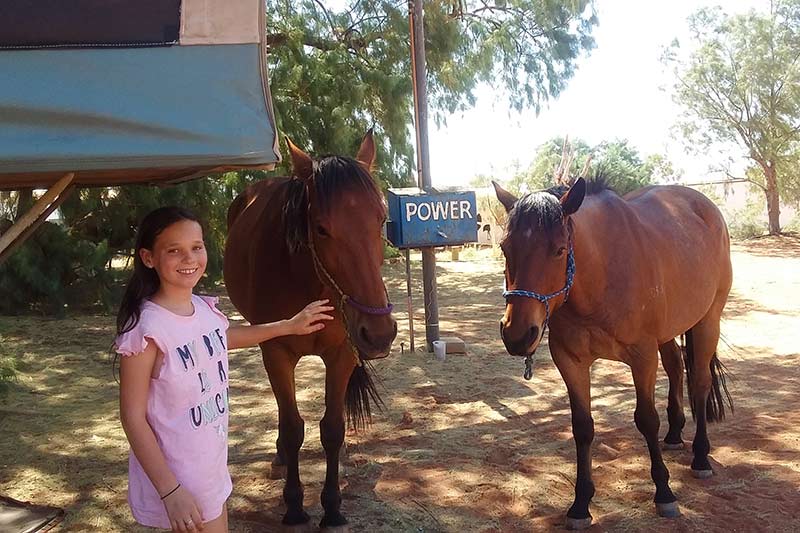
Early in October 2017, just two months before the end of our travels, it reinforced that the hardest thing about traveling was indeed when a family member was ill. We were 70km north-west of Karratha, WA, and the next morning we were going to make our way south towards Exmouth.
But that night, my eldest daughter, Frauke, 11, woke up vomiting and the next morning was still ill. We decided that today was not a good day to travel. So, after a day off to rest, and with things not having improved the next morning, I decided I would take her to Karratha, as this was the nearest hospital.
Frauke was diagnosed with a urinary track infection, given some antibiotics, and told within 48 hours she would be okay. So off back to camp we went to inform her mother and sisters of the outcome.
A TURN FOR THE WORSE
But 24 hours later, I was not satisfied with her progress. So this time, the whole family made the journey back to the hospital. She was seen by a different doctor who saved my daughter’s life. She informed me that she was ringing the Royal Flying Doctor Service and the hospital in Port Hedland to make sure they had a surgeon and theatre ready.
Within four hours, Frauke was in emergency theatre in Port Hedland Hospital. It turned out that the first doctor at Karratha had misdiagnosed her and that her appendix had perforated.
The result of this meant the family being separated, My wife went with Frauke and I returned to camp with my other two daughters. The next day, I packed up camp and made my way to Port Hedland. Not having my wife around to help that day and the days following, and with no other family or friends on hand reinforced how hard it is to live on the road.
We have met many people on the road who have said that we were on a big holiday. But my response that always been that it’s not a holiday, it’s a lifestyle, and if anyone is thinking of doing something similar, they should always expect the unexpected.
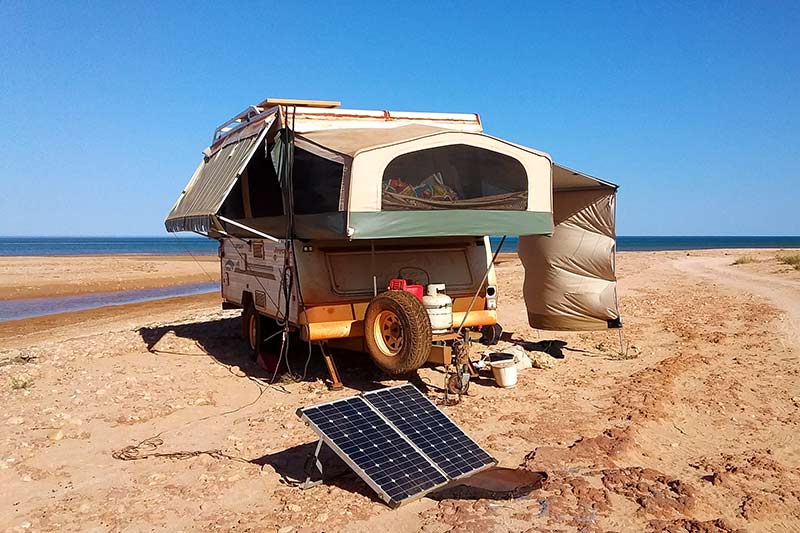
Based on my experience, here are is some outback travel advice that might help:
1. Carry a good first aid kit, not the small type for a car, but a well-stocked one for indoors and out. Expect to spend around $200.
2. Have a medicine box in your van. In this I kept all of our prescriptions and when we went remote I made sure we had extra pills in case of the unexpected. I also had Panadol and Nurofen for kids and adults, aspirin, Hydralyte, Imodium, cough syrup, tea tree oil, and Betadine. Add to this whatever else you think you might need.
3. I recommend obtaining a personal locating beacon. It will cost you between $300 and $400 but it will last seven years. Any good camping store should stock them.
4. Get a UHF radio with a good receiver and aerial for the remote areas and know your emergency channels for your location.
5. All relevant phone numbers, for example the RFDS, government and local council for things like road conditions, parks and wildlife, etc.
6. If you are going remote, or anywhere you might not have a means of communication, tell someone your estimated time of arrival, just in case.
If you’re getting ready to spend an extended time travelling this great country, remember: it’s not one big holiday; it’s a lot of work and it can be very hard at times. But, like I told so many people, it’s also like that in a house but being on the road is a lot more rewarding and fun.
Happy travels, stay safe and have fun.
EMERGENCY CONTACT
Always dial 000 first in an emergency. The emergency service will contact the Flying Doctor as and when when appropriate.


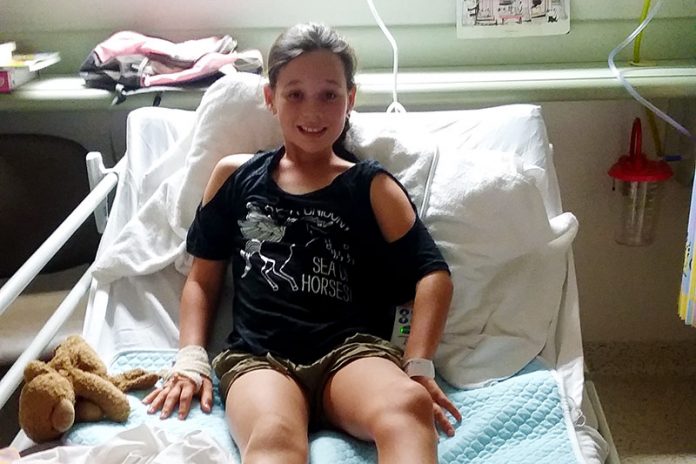
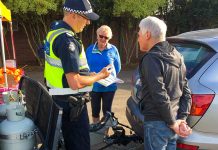
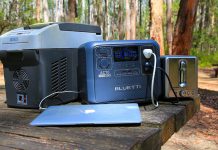
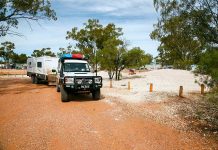

Iestyn,
A brief but very well written piece of advice that might help others on their trips .Hope you guys have settled well in Geraldton and I will pay a visit next time I’m up there.Glad to see Frauke is on the mend after such a serious medical emergency.
Hi to Anna and the kids.
Gordon
Wow, what an experience. We went thru a similar thing but we never finished our trip thru central Australia as after a ambulance and 2 medical centres we attended the slice springs hospital and this is where they found a mass near his pancreas and said it was cancer so my husband and daughter had to pack down our camp trailer and drive from Alice springs to Adelaide then they told us we needed to go to Sydney so again my husband and daughter drive from Adelaide to sydney. We ended up in Sydney for 6 months while our son had chemo treatment. One day we hope to do the trip again
Great Tips! Glad to hear your daughter is ok now, thankfully!!
Your lifestyle adventure sounds wonderful.
Thank you for sharing.
That is such wise information and not all of us think of such things I guess. Thanks for your story.
Yes having had two broken arms (at there same time) and going into shock on the Nullabor – we were confronted with a dilemma. We went to the nearest first aid station to be told they were only open on Thursdays, travelled quite some distance to find a small hospital willing to call a local doctor as they needed permission to have X-rays etc taken. They were wonderful but I had to be transferred to Perth Royal as I needed specialist wrist surgery. We carried a comprehensive first aid kit as were were used to sailing long distances and this is a requirement, however I would not let anyone touch me due to pain. Its an interesting country – but we are so lucky to be able to receive medical aid almost anywhere – remember to donate to Flying Doctor Service.
There is 1 more item that I would suggest and that is a HF radio and license for the VKS 737 radio network. That will give you contact with someone 24 – 7 that can contact police, RFDS, mechanical assistance, Ambulance and maybe someone nearby to assist you. A new radio and Antenna are pricey but you can hire or buy second hand. I wouldn’t go remote travelling without one.